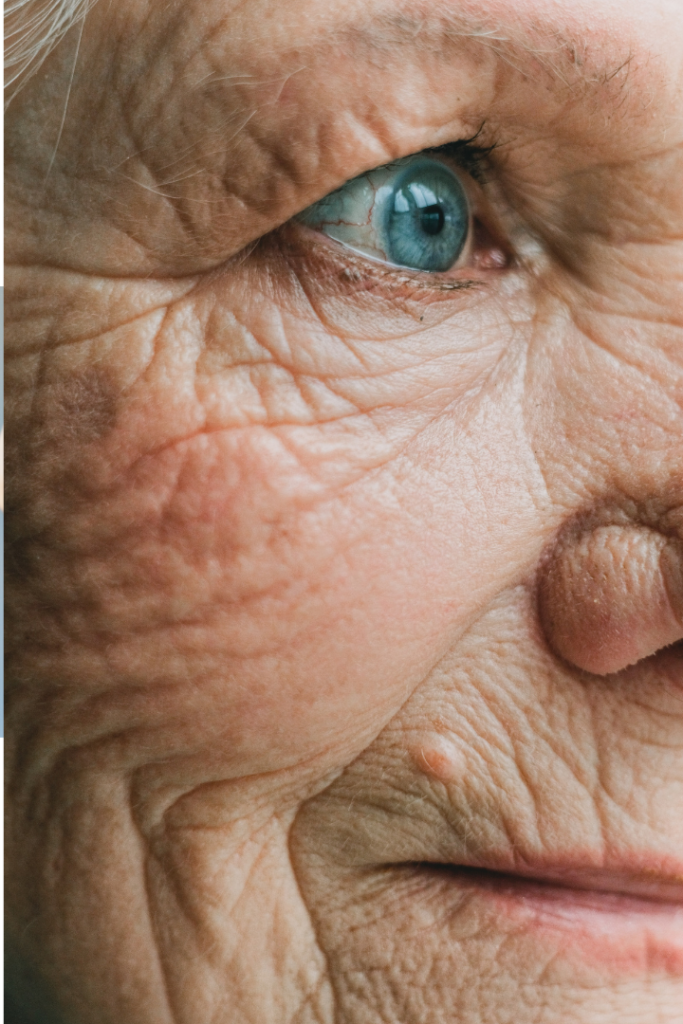
In your skin is a protein called collagen. This structural protein is part of a vast network within your skin, which holds everything together, keeping your skin firm, elastic, and wrinkle-free. But here’s the thing… as we age, we lose out collagen. [1]
Right now, as you’re reading this, your collagen levels are going down. It’s a mix of you losing collagen at a faster rate (I’ll get into why below) and your aging body struggling to make more collagen and collagen that is as strong and resilient as the collagen it’s replacing. Experts estimate that adults lose at least 1% of their collagen every year. And diet, smoking, drinking alcohol, and sun exposure can only exacerbate this number. [2, 3]
Collagen loss is what makes your skin age. Losing this crucial structure within your skin slowly causes it to sag, wrinkle, blemish easily, and more.
So, to combat skin aging, we must slow or even prevent collagen loss. But how do we do that?
Collagen banking.
Collagen banking is a new trend that essentially says this: if our skin is getting older due to a loss of collagen, why not just make sure we have a lot of collagen? The same way you’d bank money for retirement, bank collagen for your aging self so that your skin remains intact, healthy, and wrinkle-free no matter how old you are.
How do you make sure you “bank” collagen? It comes down to three main actions:
1️⃣ Preventative measures: Be sure to avoid lifestyle factors that quickly degrade your collagen and make it difficult for your body to produce new collagen.
2️⃣ Proactive measures: Add things to your routine that help support collagen synthesis and protect your collagen.
3️⃣ A collagen supplement: The most important part of collagen banking is a daily surge of collagen and consistently providing your body with quality collagen.
Let’s take a closer look at how you can achieve all three of these so that you have a high supply of quality collagen and youthful, beautiful skin that will have people saying wow!
There are many things within and outside of your control that are harming your collagen, which has drastic effects throughout your body, including wrinkles, achy joints, thin hair, and more.
While some of these you may not be able to avoid (like aging), knowing how and why these things deplete your collagen is super important if you’re going to bank collagen properly.
Keep reading to find out what could be causing your collagen levels to drop!
This is the most unfortunate one. As mentioned, the simple act of aging – which none of us can avoid – depletes your collagen. But why?
Within your body are cells called fibroblasts. These are the cells that produce collagen within your body. But as they age, their collagen-producing abilities diminish. They amount of these cells also declines with age. This means less collagen is made, and when it is made, it’s not as strong.
This results in skin that loosens and wrinkles, becomes dull, and can’t retain water as well. But depleting collagen due to age isn’t even close to the biggest thing damaging your collagen. The good news is that, while this one may be less in your control (outside of replenishing this lost collagen), most other factors you can control.
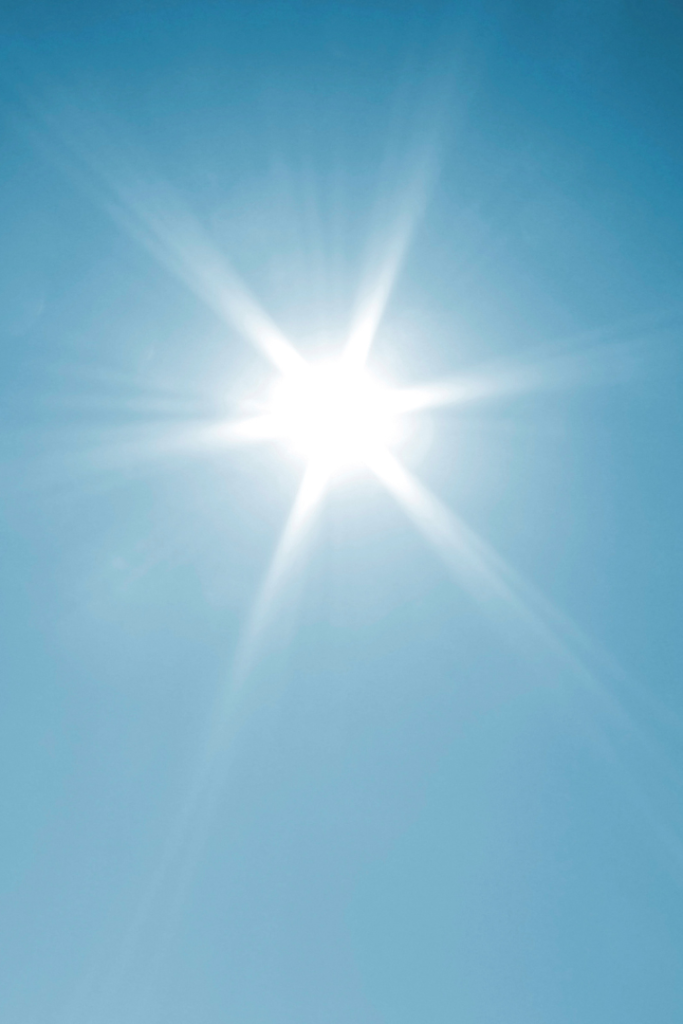
Your skin being directly exposed to the sun (without protection like sunscreen) is the number one cause of loss of collagen and skin aging.
The sun’s harmful rays enter the middle layer of the skin (the dermis) and accelerate collagen breakdown. They also give rise to free radicals that further break down collagen by increasing the presence of enzymes in the skin.
If that wasn’t bad enough, UV exposure disrupts the rate of collagen production in the body. This makes UV exposure a double whammy when it comes to your collagen.
Sunscreen, hats, staying in the shade, and being mindful of the UV index will be a major help to your skin as you age.
Your diet could be degrading your collagen, meaning a simple change in food choices could lead to healthier skin.
Collagen production in the body is strongly influenced by nutrient intake. Including foods with high protein content for amino acids that are needed to build collagen, like poultry or other healthy meat options, go a long way in providing your body with strong collagen. Foods like berries that are high in antioxidants can help protect your collagen from being broken down by free radicals, allowing you to maintain healthier levels.
However, avoiding certain foods can also make a big difference. For example, sugar is detrimental to collagen and skin health as it breaks down elastin and collagen. If you have a sweet tooth, consider opting for healthier sweeteners instead.
Alcohol and cigarettes are both also terrible for your collagen, with smoking being considered one of the fastest ways to deplete your collagen levels.
All in all, just be sure to consume a diverse diet of whole foods so that your body can take in a wide range of nutrients.
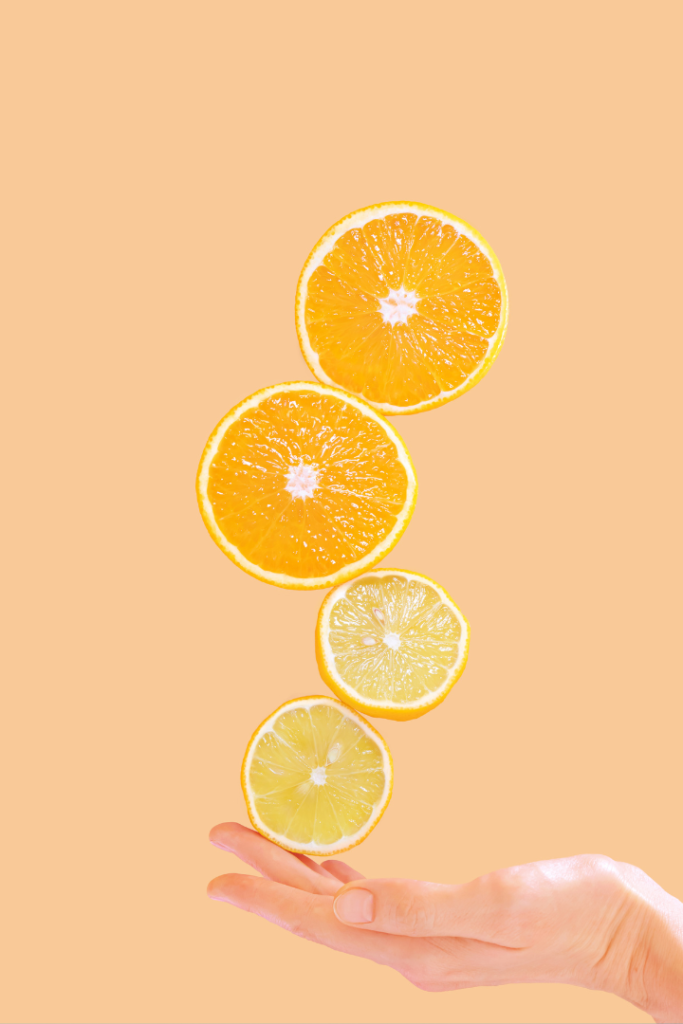
Speaking of nutrients, vitamin C is one of the most important vitamins you can take when it comes to collagen.
Vitamin C fights free radicals and limits the damage caused by the sun’s UV rays. One of the most powerful antioxidants you can consume, vitamin C helps protect the skin from damage caused by pollution. The easiest way to fight free radicals (which destroy collagen) is to increase the amount of antioxidants in your body. And higher vitamin C levels are a great way to do this.
Consider adding lots of fruits and vegetables that are high in vitamin C to your diet, or add a high-quality liposomal vitamin C to your supplement regimen.
It may seem strange that feeling a certain way can degrade your skin and your collagen, but it’s true.
For starters, stress is pro-inflammatory, which interferes with the body’s natural ability to produce collagen. Stress also increases the levels of the stress hormone cortisol within your body. Cortisol also interrupts your body’s collagen production.
When your body is in a stressful state, most of your energy goes to counter the stress and inflammation that’s caused as a result, leaving less room for things like collagen production.
On the other hand, there are changes you can make in your life that will naturally boost your collagen levels. As you may suspect, healthy habits will go a long way, but there are also certain foods you can eat and things you can add to your skincare routine to help out your collagen.
Ah, good old exercise. It helps your body with so much, and skin health isn’t an exception. Have you ever noticed that those who exercise regularly have a glow to them and may even look younger? One of the reasons for this actually has to do with collagen.
When you exercise, you increase blood flow throughout your body, allowing even the smallest blood vessel networks to receive more oxygen and nutrients. When this influx hits your skin, your body can more easily produce collagen. [4]
On top of that, when you exercise, you strengthen your heart so that it can pump blood more effectively, even at rest. This allows better collagen production in your skin around the clock.
This is why those who exercise regularly appear to age slower: because their skin has more collagen!
If you’re into health and beauty, you’ve likely come across this ingredient before. It’s a compound naturally produced by your body, found mostly in the eyes, joints, and skin. As a beauty ingredient, it hydrates your skin and locks in that moisture. But it also helps with collagen.
Plenty of research has shown that applying hyaluronic acid to your skin can not just boost collagen production but also increase the quality of the collagen your body is creating – a double whammy! [5, 6]
Adding hyaluronic acid to your skincare routine is a great way to help your body in the fight against collagen loss.
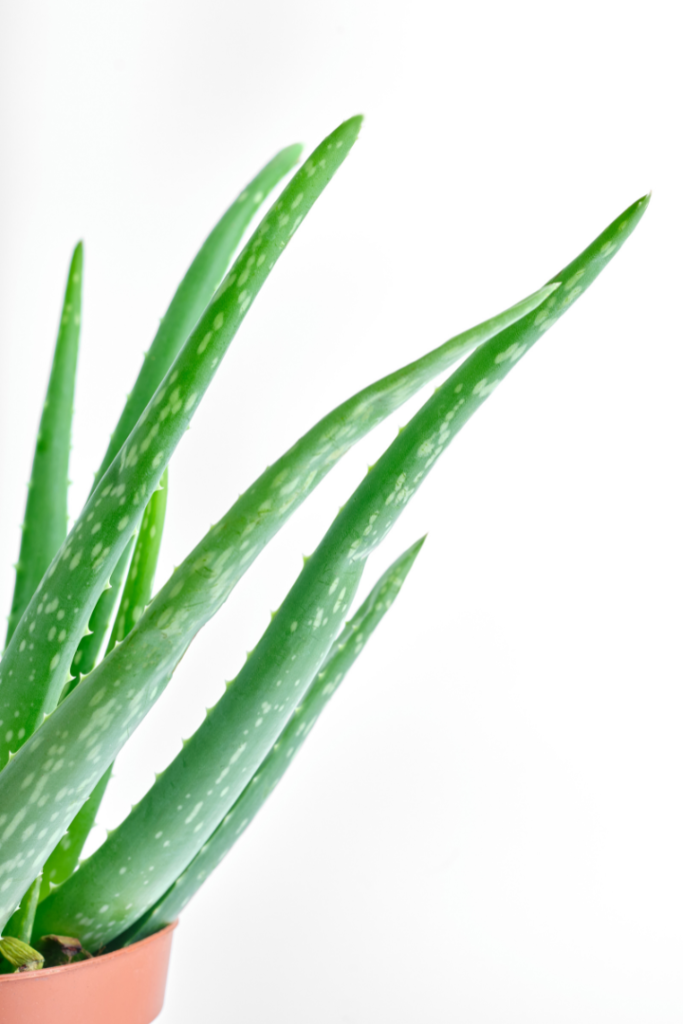
You may have seen an aloe vera plant in a friend’s house, or perhaps you have one in your own home. These plants have thick, long “leaves” that can be split or cut open to reveal a beneficial gel-like substance.
People often use aloe vera gel to treat sunburns and rashes. That’s because it contains compounds that can calm both of these conditions, bringing relief.
However, aloe vera can also boost collagen levels. One study from 2015 found that daily aloe vera use increased skin hydration, lessened wrinkle depth, and nearly doubled the amount of collagen and hyaluronic acid in the skin! [7]
So, next time you’re in the plant store, consider grabbing an aloe vera plant to help you with your skincare to naturally boost collagen levels!
Through natural and normal metabolic processes, your body creates what are called “free radicals.” These are unstable molecules that damage cells – including collagen – by stealing their electrons. Exposure to chemicals, cigarette smoke, alcohol, and processed foods can also increase the amount of free radicals in your body.
Antioxidants neutralize free radicals, protecting your cells and your collagen. When it comes to protecting your collagen, antioxidants are the top dog. This is why research has shown that antioxidants benefit the health of your skin. [8]
Foods rich in antioxidants include:
✅ Berries
✅ Green tea
✅ Mulberry extract
✅ Broccoli
✅ Spinach
✅ Pomegranates
✅ Coffee
✅ Cinnamon
✅ Dark chocolate
✅ Basil, oregano, and thyme
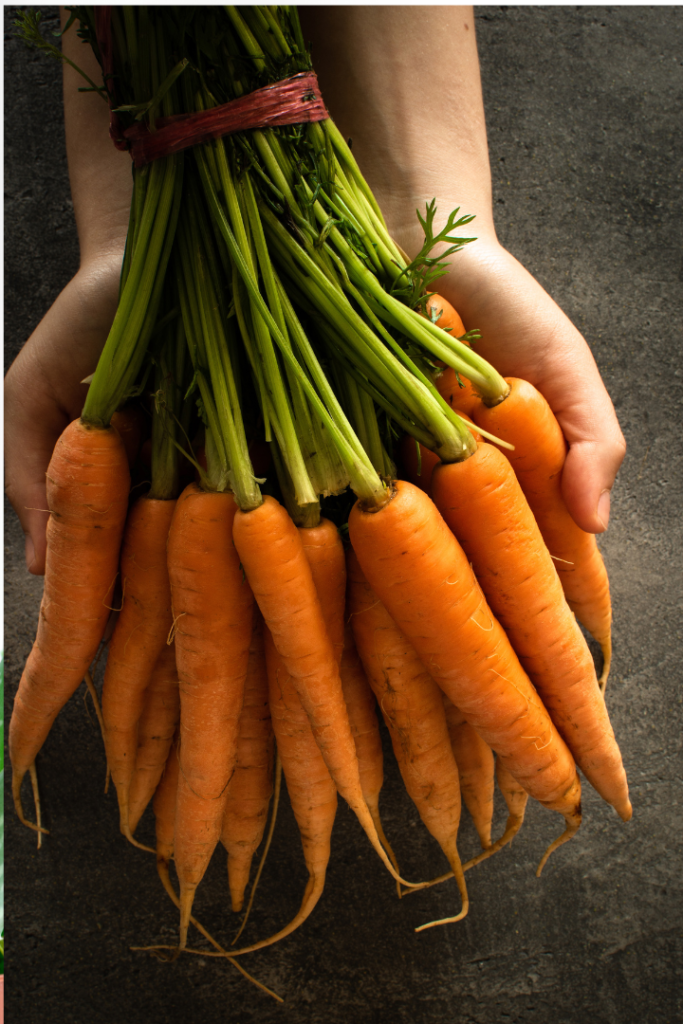
As mentioned, UV rays are the biggest thing damaging your collagen. But, obviously, you can’t fully avoid sun exposure. That’s where certain antioxidants like retinol and beta-carotene come in. These are both derivatives of vitamin A and can protect your skin.
Research shows that retinoids can protect your skin from sunlight by preventing UV rays from breaking down collagen. [9]
To get retinol, eat foods high in vitamin A, such as:
✅ Beef liver
✅ Sweet potatoes
✅ Spinach
✅ Pumpkin
✅ Carrots
While you should avoid sunlight, there are other lights that can actually boost the collagen in your skin.
One such type of light is red light therapy. Researchers have found that this type of light therapy can be a quick and safe way to increase collagen in the skin. [10]
Other studies have found that red light combined with near-infrared light on skin cells boosted the production of collagen and elastin – another important structural protein of the skin. [11]
While you can undergo your own light therapy at home, many dermatologists offer it at their clinics, and it’s best to consult with one before investing in lights for use at home.
Last but certainly not least, you have to ensure that you’re taking in high-quality collagen on a daily basis. While finding ways to stimulate collagen production and slow down the degradation of your collagen is definitely useful, nothing beats simply topping up using a top-rated collagen supplement.
This is why I created EverBella’s Complete Collagen Plus.
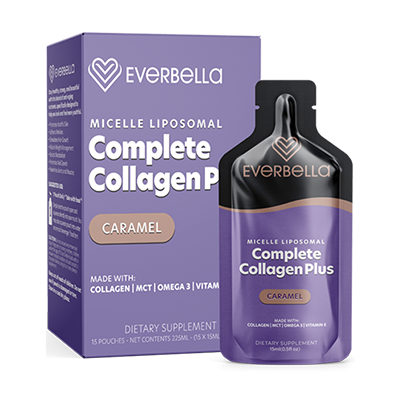
The truth is that most pill and powder forms of collagen on the market simply don’t work. Your body can’t take in the amino acids in the formula and properly synthesize collagen because these compounds aren’t even being absorbed.
Too many collagen supplements don’t focus on bioavailability, but I do!
My collagen is formulated with a highly absorbable micelle liposomal formula. These are natural lipid molecules that encapsulate the collagen amino acids so that they can be delivered intact straight to your bloodstream and right to where they need to go: the skin.
So that you can fully experience the difference that absorbable collagen can make, I give you six entire months to try my Complete Collagen Plus formula.
It’s delicious, in a liquid form that comes in convenient pouches, and it actually works.